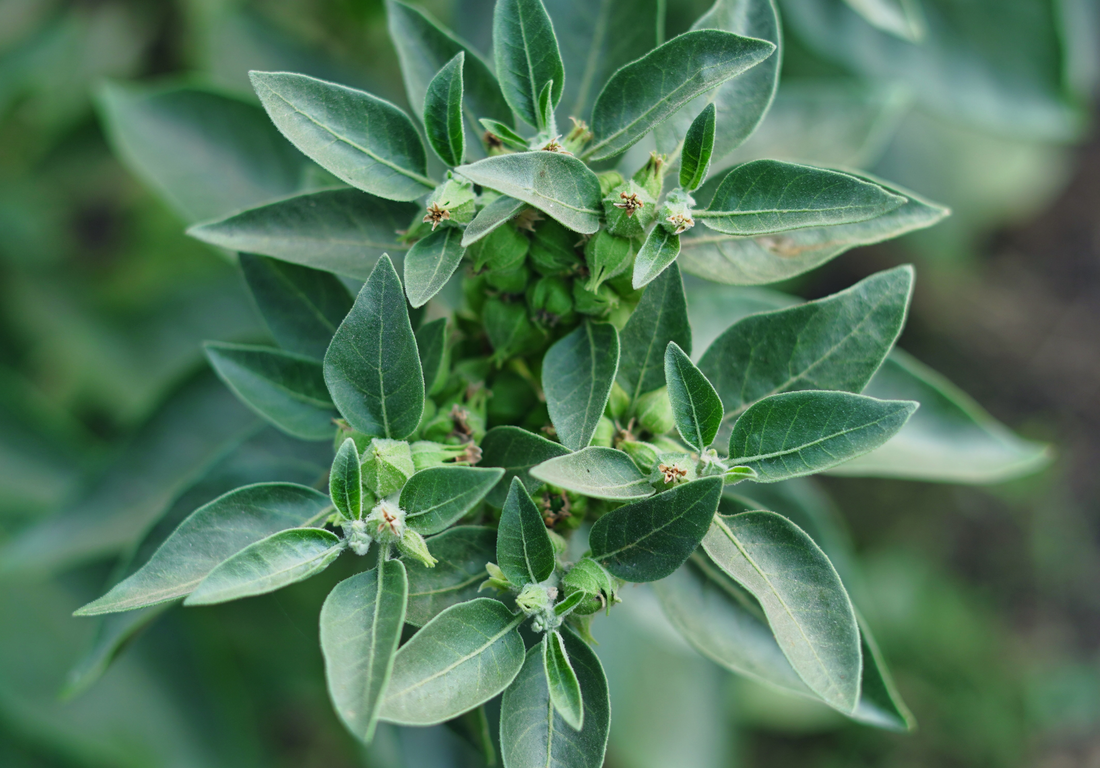Stress has inevitably become a constant companion in our modern lives. From personal challenges to professional hurdles, stressors seem to lurk around every corner. However, the real problem arises when we fail to manage these stressors effectively. In the quest for stress management, many have turned to natural remedies like the Ashwagandha plant. In this article, we’ll delve into the Functional Patterns' take on stress and the role of ashwagandha in combating it.
Understanding Ashwagandha: Nature's Stress Reliever
The Ashwagandha plant is scientifically known as Withania Somnifera and a nootropic considered as more than just a supplement.(1) Ashwagandha is also referred to as Indian Ginseng or Winter Cherry, and has been a staple in traditional Ayurvedic medicine for centuries. It's known for its ability to enhance the body’s resilience to stress leading to improved brain function.(2)
Overall, the strongest evidence for Ashwagandha benefits is relieving stress and anxiety.(2) Renowned for its adaptogenic qualities, this herb has been shown to help the body combat stress by lowering cortisol hormone levels.(2) It’s not just about the Ashwagandha dosage or making a cup of Ashwagandha tea, it’s about understanding its role in a holistic stress management strategy.

Ashwagandha may have a potential impact on testosterone levels that might contribute to improved vitality and energy, aspects crucial in managing stress effectively. The onset of relief from anxiety using Ashwagandha can vary, with some experiencing benefits within a few days, while others might take longer or not see noticeable benefits.(2)
Regulatory and Medical Perspectives
Despite its preliminary benefits, the ashwagandha plant is a natural herbal supplement and it isn’t regulated by the U.S. Food and Drug Administration (FDA). Ashwagandha isn’t FDA-approved largely due to the stringent requirements for drug approval. This lack of approval can also contribute to some doctors' reluctance to recommend it as a treatment option.
Ashwagandha Dosage: Finding Balance
As with any supplement, finding an appropriate Ashwagandha dosage is crucial. While the herb is generally considered safe, an overdose can lead to side effects like upset stomach, diarrhea, and drowsiness.(3) It's important to start with a lower dosage and ensure side effects aren’t present. A reduction of cortisol levels, the body's primary stress hormone, has been found with a daily Ashwagandha dosage.(2) It's also been linked to improved sleep, enhanced focus, and reduced anxiety. All these effects indirectly contribute to better stress management. Keep in mind, it's better to utilize this herb at a lower dose so that it is easier to taper off of once it is no longer needed.
Ashwagandha Tea: Low Dose Consumption for Troubleshooting
One popular way of finding a temporary, workable Ashwagandha dosage into your routine is through Ashwagandha tea. This herbal brew is made from the root or leaves of the ashwagandha plant and is commonly used as a relaxing ritual. Sipping a warm cup of Ashwagandha tea before bedtime has been anecdotally claimed to help calm the mind and prepare the body for rest, further contributing to stress management.(2) This could be incorporated sparingly at about a couple times a month at relatively low risk for some people as opposed to daily consumption.

The Functional Patterns Take on Ashwagandha
While the benefits of Ashwagandha are acknowledged, at FP we advise caution in relying regularly on supplementation. Our approach emphasizes the importance of endogenous capabilities, or the body's internal mechanisms, over exogenous substances like supplements. While supplements like ashwagandha may aid in stress management for some people, they should not be prioritized over the training for efficiency around how humans evolved to move. The FP hierarchy of needs is an approach to natural stress relief with examples shown below. Supplementing with ashwagandha plant should complement these strategies, not replace them.

The Biomechanical Impact of Stress
At FP, managing stress effectively involves more than just supplements like Ashwagandha. It's about fostering adaptability through movement efficiency. We emphasize that chronic stress can lead to biomechanical imbalances. These imbalances can contribute to poor posture, decreased mobility, and increased risk of injury. Therefore, managing stress is primarily about maintaining optimal physical function around the FP "First Four" - standing, walking, running, and throwing. Stress resilience is improved when these movements are performed efficiently as shown by thousands of posture, walking, and running results worldwide using FP training.
Conclusion
Managing stress effectively long term requires a multifaceted approach. The Ashwagandha plant with its natural adaptogenic properties may be a valuable tool when used appropriately in specific contexts. However, it should be a small part of a broader strategy that prioritizes the FP “First Four” - standing, walking, running, and throwing - and the FP hierarchy of needs. Having ashwagandha tea once a week or less may be relatively low risk whereas daily usage may be approached with caution. The journey to managing stress is not just about one solution but about creating a way to live that supports your unique situation.
If you're interested in Functional Patterns, we recommend you to find a FP Practitioner near you for in person or virtual training.
Learn more about Functional Patterns and stress in the following resources:
- Adapting to Thrive: Tools and Perspectives for an Adaptive Mindset
- Adaptogens, Nootropics, and the Rise of Quick-Fix Culture
- Defying Time: The Psychology of Aging and the Promise of Anti-Aging Supplements
- Examining the Link between Stress and Autoimmune Diseases
- Magnesium Vs Melatonin: The Key To Better Sleep
- Alleviating Anxiety and Chronic Pain
- Analyzing Meditation as a Relevant Tool for Addressing Stressors in Life
- Anxiety, Non-Verbal Communication, & Biomechanics
References
- “The Science Behind Nootropics: How They Work and Their Effectiveness” The Database For Brain Effectiveness & Memory, March 24th 2023, https://dbem.org/the-science-behind-nootropics-how-they-work-and-their-effectiveness/#:~:text=Nootropics%20work%20by%20targeting%20specific,mental%20performance%20in%20various%20ways.
- Lopresti, Adrian L. and Smith, Stephen J. “Ashwagandha (Withania somnifera) for the treatment and enhancement of mental and physical conditions: A systematic review of human trials,” Journal of Herbal Medicine, Volume 28, August 2021, https://www.sciencedirect.com/science/article/abs/pii/S2210803321000142.
- “Ashwagandha - Uses, Side Effects, and More.” WebMD, https://www.webmd.com/vitamins/ai/ingredientmono-953/ashwagandha.





